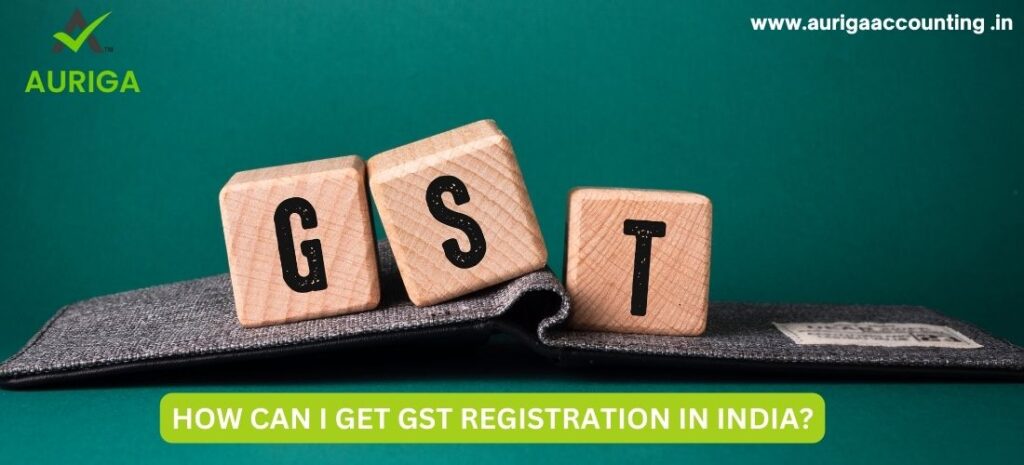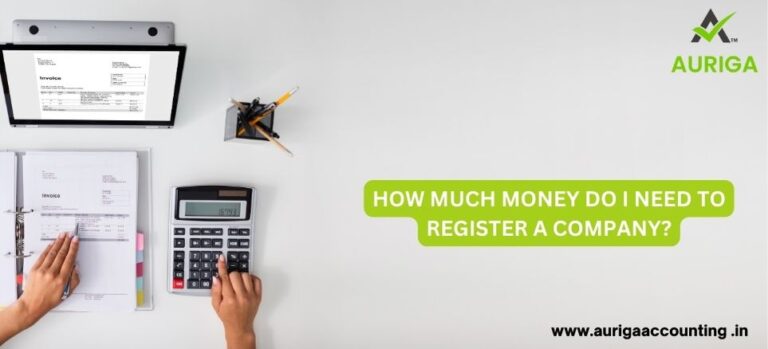
HOW CAN I GET GST REGISTRATION IN INDIA?
Introduction
ToggleHOW CAN I GET GST REGISTRATION IN INDIA?
Getting Goods and Services Tax (GST) registration in India is a crucial step for
businesses involved in the supply of goods and services. The GST registration process
is facilitated by the Goods and Services Tax Network (GSTN), and here are the steps to
obtain GST registration: Visitofficialwebsite
Step-by-Step Guide for GST Registration:
1. Determine Eligibility:
Ensure that your business is eligible for GST registration. Businesses with an annual
aggregate turnover exceeding the prescribed threshold limit (as of my last knowledge
update in 2022, the threshold limit was INR 20 lakhs for most states and INR 10 lakhs
for special category states) are required to register for GST.
2. Visit the GST Portal:
Access the official GST Portal at https://www.gst.gov.in/.
3. Click on "Services" and Select "Registration":
On the GST Portal, navigate to the "Services" tab and select "Registration" from the
dropdown menu.
4. Choose "New Registration":
Click on "New Registration" to start the application process.
5. Fill in the Basic Details:
Provide the necessary details such as your legal name, business name, PAN, mobile
number, and email address. You will receive an OTP on the mobile number and email
for verification.
6. Verification of OTP:
Enter the OTP received on your mobile and email for verification.
7. Temporary Reference Number (TRN):
After OTP verification, you will receive a Temporary Reference Number (TRN).
8. Fill Part-B of the Application:
Using the TRN, log in to the GST Portal and complete Part-B of the application. Provide
details such as business details, business constitution, bank account details, and
authorized signatory information.
9. Upload Documents:
Upload the required documents, including proof of business registration, address proof,
photograph, bank account details, and authorization form.
10. Verification of Application:
After submitting the application, a verification process will take place. This may involve a
visit by a GST officer.
11. GSTIN Allotment:
Upon successful verification, a Goods and Services Tax Identification Number (GSTIN)
will be allotted.
12. Download GST Certificate:
You can download the GST certificate from the GST Portal once the registration is
complete.
Required Documents for GST Registration:
1. Proof of Business Registration:
For companies, Partnership Deed, Certificate of Incorporation, etc.
For individuals, Aadhar card, PAN, and photo.
2. Address Proof:
Rent agreement, electricity bill, or any other valid address proof.
3. Bank Account Details:
Scanned copy of the first page of the passbook or a canceled cheque.
4. Authorized Signatory Details:
Photograph and address proof of the authorized signatory.
5. Additional Documents:
Depending on the type of business entity and nature of business, additional documents
may be required.
HOW MUCH DOES GST REGISTRATION COST?
1. Professional Fees:
Businesses may choose to engage the services of a GST consultant, chartered
accountant, or a professional service provider to assist with the registration
process. The fees for such services can vary based on the service provider and
the scope of assistance needed.
2. Documentation Costs:
Businesses might need to gather and submit various documents for the GST
registration process. There could be costs associated with obtaining or preparing
these documents.
3. Additional Services:
Some professionals may offer additional services beyond basic registration
assistance, such as GST compliance, return filing, and ongoing advisory
services. These additional services may have separate fees.
WHO IS ELIGIBLE FOR GST REGISTRATION IN INDIA?
In India, businesses and individuals involved in the supply of goods or services are required to
obtain Goods and Services Tax (GST) registration under certain conditions. The eligibility for
GST registration is primarily based on the aggregate turnover of the business.
1. Mandatory GST Registration:
Threshold Limit: Businesses with an aggregate turnover exceeding the
prescribed threshold limit are required to register for GST. The threshold limit
varies for different states and Union Territories.
Threshold for Special Category States: For businesses operating in special
category states (such as Arunachal Pradesh, Mizoram, etc.), the threshold limit is
lower than in other states.
2. Voluntary GST Registration:
Option for Voluntary Registration: Even if a business's turnover is below the
threshold limit, it can choose to voluntarily register for GST. This can be
beneficial for businesses looking to avail input tax credit, participate in inter-state
transactions, or enhance their credibility.
3. Specific Business Activities:
Inter-State Supply: Businesses engaged in inter-state supply of goods or
services are generally required to register for GST, irrespective of their turnover.
Casual Taxable Person: Individuals who occasionally undertake taxable
transactions and do not have a fixed place of business are required to obtain
GST registration.
Non-Resident Taxable Person: Non-resident individuals or entities making
taxable supplies in India are required to register for GST.
4. Special Cases:
E-commerce Operators: E-commerce operators are required to register under
GST, irrespective of their turnover, if they facilitate the supply of goods or
services through their platform.
Input Service Distributors: Input Service Distributors (ISDs) are required to
register under GST to distribute input tax credit.
5. Persons Liable to Deduct TDS/TCS:
TDS (Tax Deducted at Source): Persons liable to deduct TDS under GST are
required to obtain registration.
TCS (Tax Collected at Source): E-commerce operators required to collect TCS
are required to register under GST.
CAN A NORMAL PERSON GET GST NUMBER?
a normal person or an individual can get GST (Goods and Services Tax) registration in
India if they are involved in any economic activity that falls under the purview of GST.
GST registration is mandatory for individuals or businesses whose aggregate turnover
exceeds the prescribed threshold limit. Additionally, even if the turnover is below the
threshold, a person can choose to voluntarily register for GST.
Here are the key points regarding GST registration for individuals:
1. Mandatory Registration:
If an individual's aggregate turnover of taxable supplies (goods or services)
exceeds the prescribed threshold limit, they are required to obtain GST
registration. As of my last knowledge update in January 2022, the threshold limit
was INR 20 lakhs for most states and INR 10 lakhs for special category states.
2. Voluntary Registration:
Even if an individual's turnover is below the threshold limit, they have the option
to voluntarily register for GST. This can be advantageous for individuals who
want to avail themselves of input tax credit, participate in inter-state transactions,
or enhance their business credibility.
3. Inter-State Transactions:
Individuals engaged in inter-state supplies of goods or services are required to
register for GST, irrespective of their turnover.
4. Specific Activities:
Certain activities, such as providing online information and database access or
retrieval services from a place outside India to a person in India, may require
GST registration for the service provider.
5. Casual Taxable Person:
Individuals who occasionally undertake taxable transactions but do not have a
fixed place of business in the taxable territory are required to obtain GST
registration as casual taxable persons.
6. TDS and TCS Provisions:
Individuals liable to deduct Tax Deducted at Source (TDS) or collect Tax
Collected at Source (TCS) under GST are also required to obtain registration.
WHO WILL ISSUE GST CERTIFICATE?
The Goods and Services Tax (GST) certificate is issued by the tax authorities upon
successful GST registration. In India, the GST registration process is administered by
the Goods and Services Tax Network (GSTN) through the official GST Portal. Here is
an overview of the issuance of the GST certificate:
1. Application Submission:
Businesses or individuals seeking GST registration need to submit an online
application through the GST Portal.
2. Verification Process:
Once the application is submitted, the tax authorities review the details provided,
and a verification process may be initiated. This may involve scrutinizing the
documents submitted and verifying the accuracy of the information provided.
3. Communication and Clarifications:
If there are any discrepancies or additional information is required during the
verification process, the tax authorities may communicate with the applicant
through the GST Portal. The applicant may need to respond to queries or provide
further clarification.
4. Approval and Issuance:
Upon successful verification and completion of the registration process, the tax
authorities approve the GST registration. Subsequently, they issue the GST
certificate to the applicant.
5. Download from GST Portal:
The GST certificate is made available for download on the GST Portal. The
applicant can log in to the GST Portal using their credentials and download the
GST certificate.
6. Details on GST Certificate:
The GST certificate includes important information such as the Goods and
Services Tax Identification Number (GSTIN), legal name of the business, trade
name (if any), effective date of registration, and other relevant details.
7. Validity Period:
The GST certificate is generally valid for the period mentioned in the certificate.
Businesses are required to renew their registration as per the prescribed
guidelines.
HOW DO I CLAIM MY GST REFUND?
Claiming a Goods and Services Tax (GST) refund in India involves a specific process
outlined by the GST law. GST refunds may be applicable in various scenarios, such as
excess input tax credit, exports, inverted duty structure, etc. Here are the general steps
to claim a GST refund:
Steps to Claim GST Refund:
1. Eligibility Check:
Ensure that you are eligible for a GST refund based on the specific
circumstances that allow for a refund claim.
2. File Correct Returns:
Ensure that you have filed all relevant GST returns correctly. The GST refund
claim is generally linked to the information provided in the GST returns.
3. Verify Refund Eligibility:
Identify the specific circumstances that make you eligible for a refund. Common
scenarios include exports, inverted duty structure, and accumulated input tax
credit.
4. Prepare Necessary Documents:
Gather all supporting documents required for the refund claim. The documents
may vary based on the nature of the refund claim. For example, if claiming a
refund on exports, relevant shipping bills and export invoices are essential.
5. Initiate Refund Application:
Log in to the GST Portal using your credentials and navigate to the "Refund"
section. Initiate the refund application by providing the necessary details and
uploading the required documents.
6. Submit Refund Application:
After filling in the required details and attaching the supporting documents,
submit the refund application on the GST Portal.
7. Verification by Tax Authorities:
The tax authorities will review the refund application and may conduct
verification. This process ensures that the refund claim is legitimate and
supported by proper documentation.
8. Communication and Clarifications:
If there are any discrepancies or if additional information is required, the tax
authorities may communicate with you through the GST Portal. Respond
promptly to any queries to expedite the refund process.
9. Approval and Sanction:
Upon successful verification, the tax authorities will approve the refund
application. The refund amount will be sanctioned.
10. Refund Payment:
Once the refund is approved, the amount will be credited to the bank account
mentioned in the GST refund application.
11. Monitor Refund Status:
Regularly check the status of your refund application on the GST Portal. The
status will be updated as the application progresses through the various stages.
conclusion of GST registration in india
In conclusion, Goods and Services Tax (GST) registration in India is a crucial step for businesses engaging in the supply of goods or services. It streamlines the taxation system by replacing multiple indirect taxes, fostering a unified national market. The process involves obtaining a unique GST identification number, complying with documentation requirements, and submitting the application to the GST portal. GST registration is mandatory for businesses exceeding the prescribed turnover threshold, and voluntary registration is also available for those below the threshold. While GST brings efficiency and transparency, businesses must maintain accurate records and adhere to compliance requirements for a seamless and lawful operation within the GST framework. Continuous monitoring of updates and consulting with tax professionals ensures ongoing compliance and successful participation in India’s GST regime.
how auriga accounting help you to gst registration in india
Auriga Accounting provides assistance with Goods and Services Tax (GST) registration in India. However, accounting firms and professionals typically offer a range of services to help businesses navigate the GST registration process. Here are some ways in which Auriga Accounting or similar firms might assist with GST registration:
Consultation:
- Providing initial consultation to assess the business’s eligibility for GST registration and explaining the process and requirements.
Documentation Guidance:
- Assisting in the preparation and collation of the necessary documents required for GST registration, including PAN, Aadhaar, business proof, bank details, and others.
Application Submission:
- Completing and submitting the GST registration application on behalf of the business through the GST portal.
Follow-Up and Liaison:
- Following up with tax authorities and acting as a liaison between the business and the GST department to address any queries or concerns during the registration process.
Compliance Advisory:
- Providing advice on compliance requirements post-GST registration and guiding businesses on maintaining proper records and filing returns.
Review of Business Operations:
- Assessing the nature of the business operations to determine the appropriate GST registration category and ensuring accurate classification.
Continuous Updates:
- Keeping the business informed about any changes in GST rules and regulations, ensuring ongoing compliance with the latest requirements.
Tax Planning:
- Offering advice on tax planning strategies within the GST framework to optimize benefits and minimize liabilities.
Training and Support:
- Providing training and support to the business’s finance and accounting teams to ensure a clear understanding of GST compliance and reporting.
Resolution of Issues:
- Assisting in the resolution of any issues or disputes that may arise with tax authorities post-GST registration.
For precise details on how Auriga Accounting specifically helps with GST registration, it is recommended to contact them directly or visit their official website. Since regulations may change, consulting with professionals ensures that the business receives accurate and up-to-date guidance on GST-related matters.












